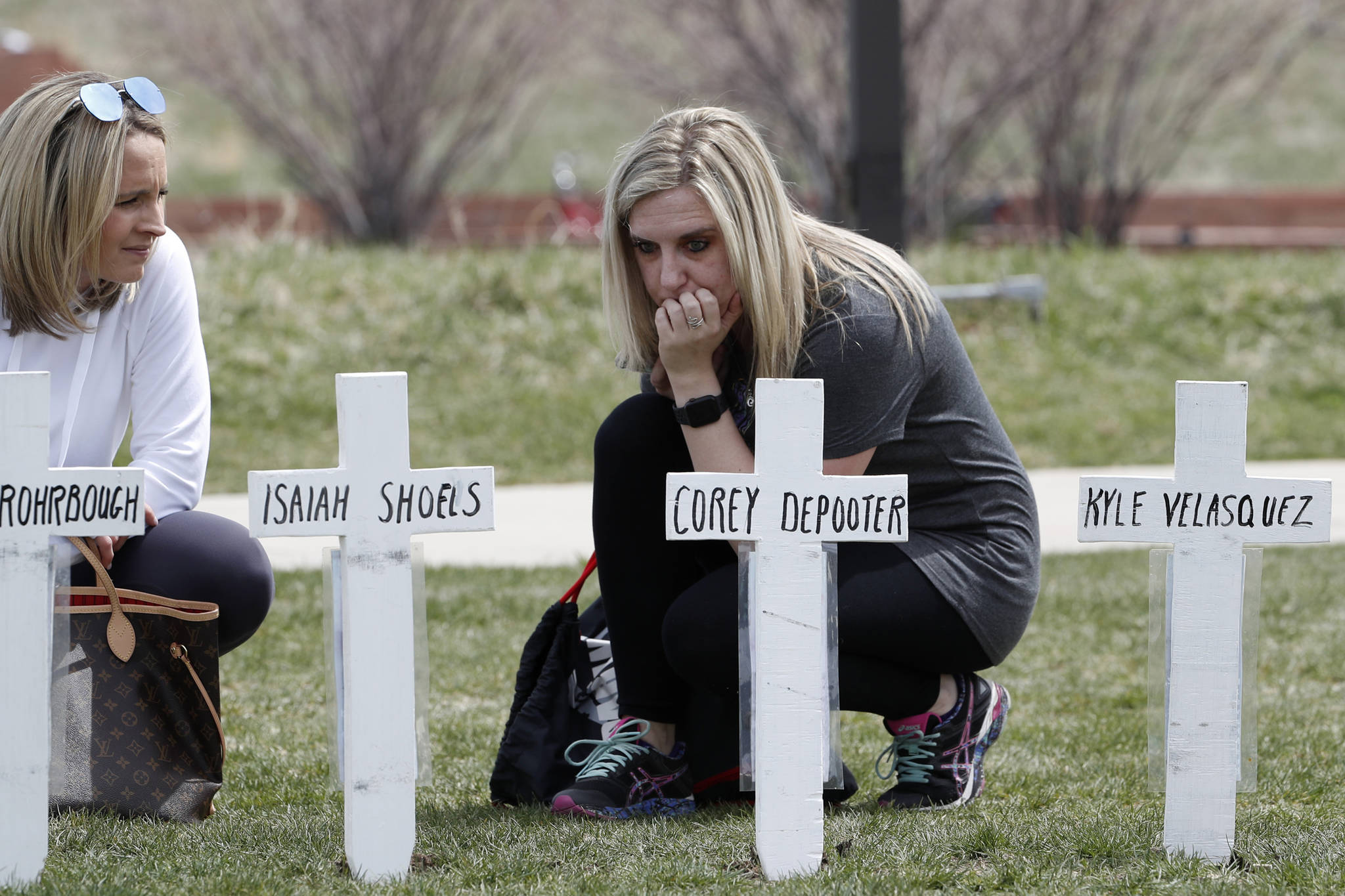Over my 42 years in Alaska, I’ve loved my life as an outdoorsman and hunter, and still do. Like many Alaskans, I own firearms that are essential to my hunting. I’ve taught my children (now adults) to respect safe use and handling of firearms. We’ve hunted together and continue to do so — a special relationship that brings us close to the land and lifestyle we love.
But I do not support unlimited ownership of firearms. As we mark the passing of 20 years since the tragic shootings at Columbine High School, I am deeply frustrated, ashamed and remorseful that Alaska and our nation have done so little to rein in preventable gun violence. Yes, we offer gun safety classes for hunters. But we fail to preventatively remove firearms from people who are most likely to hurt themselves and others.
Why is it that the mass killing of students and teachers at the Colorado high school changed everything and yet nothing?
“I feel like we have come so far in so many ways, yet we’re still stuck in the same spot,” said Coni Sanders, the daughter of Dave Sanders, the slain Columbine High School teacher. “I never imagined that we would be where we’re at right now, where there are so many mass shootings that we can’t even keep up. … It’s just unfathomable that Columbine wasn’t enough.”
[Opinion: Alaska can join other states in passing reasonable gun laws]
Knowing there are many ways to curb gun violence without encroaching on my Second Amendment rights, I find it unfathomable that Congress and our state Legislature continue to punt on gun violence, allowing the school death toll to rise and rise.
Did you know that according to The Washington Post, 143 children and teachers have been killed at school with an additional 294 injured by gun violence since the Columbine massacre? Fortunately, some municipalities and state legislatures are stepping up to pass legislation aimed at reducing gun violence.
The red flag law is one such law enacted by a number of states, including the Republican-controlled legislatures of Florida and Indiana. Shooters often display warning signs before committing violent acts. Red flag laws allow family members and law enforcement officials to seek a court order to temporarily prohibit the disturbed shooter from purchasing and possessing guns while the order is in effect.
[Opinion: Forget awareness, sexual assault survivors deserve real change]
A red flag law could address Alaska’s epidemic of gun violence — firearm suicide. According to the Center for Disease Control, suicide accounts for nearly two-thirds of gun deaths in the United States. Alaska’s firearm suicide rate exceeds the national average.
Between 2013 and 2017, more than 800 Alaskans were killed by guns. The CDC reports that 72 percent of all firearm deaths were firearm suicides, killing nearly 600 residents. On average, one Alaska resident dies by firearm suicide every four days. In Alaska, residents are more than three times as likely to die by firearm suicide than by firearm homicide.
We Alaskans must act now to keep our family members, friends and neighbors alive.
Three legislators have sponsored House Bill 62 which would allow Alaska to become the 16th state to pass a red flag law. An April 2018 poll conducted by Alaska Survey Research showed 84 percent of Alaskans support allowing family members or police to petition a judge to temporarily remove firearms from a person deemed to be at risk of gun violence.
[Opinion: Where’s the adult leadership on gun violence?]
Right now, we have a bill before the Legislature that’s supported by a sizeable majority of Alaskans. Next, we need a hearing in the state House Judiciary Committee.
An independent 2017 study of Connecticut’s red flag law found that the law averted an estimated 72 or more suicides. Think of how many more lives could be saved in Alaska with this simple step of empowering family members and community police to act on recognizable warning signs.
I know we can remain a gun country while being smart with guns. We must not wait to act. Even with our budget crisis, we can afford one simple hearing on HB 62. Please contact your legislators to support this legislation.
Bill Hanson is an Alaska resident of 42 years, a passionate outdoorsman, hunter and gun owner. He resides in Douglas.
• Bill Hanson is an Alaska resident of 42 years, a passionate outdoorsman, hunter and gun owner. He resides in Douglas.

